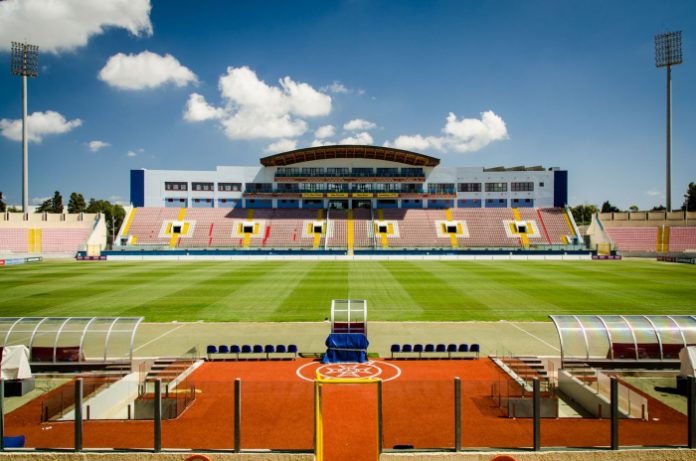With reference to media reports, the Malta FA is well aware that the National Stadium pitch, in Ta’ Qali, is currently not in the best condition owing to various factors. The Association feels that, in order to avoid further speculation on this very specific subject, it should publicly explain the entire process followed by the international company that manages the greenkeeping at its sports complex in Ta’ Qali.
The maintenance process adopted in recent years, since the installation of the new hybrid pitch at the National Stadium (a system that combines natural grass and synthetic fibres) has changed. At present, the seed is not sown in summer (Bermudagrass) i.e. between one football season and the next. In the last weeks, the Malta FA has followed the direction and advice given in a report prepared by an expert agronomist in the field and carried out the proposed maintenance work accordingly. Upon completion of this process, the pitch should be in an optimal condition in a few weeks’ time, before the winter seed (ryegrass) is sown when the climate changes.
The climate change factor (strong heat that suffocates the air at the root level and also the strong humidity of the past weeks) have had an adverse effect on the state of the pitch, causing a situation like the one we are experiencing at the beginning of this season. When the winter grass dies, the summer grass takes much longer than normal to germinate and spread, especially in those areas where there is the greatest amount of traffic on the pitch and therefore where the greatest compaction takes place. It must be said that, having areas without bermudagras does not mean that the pitch is not suitable for use as all the parameters related to the quality of the pitch, namely hardness and traction, are all in accordance with the required levels.
Other significant factors that posed a greater challenge for the state of pitch this year were those related to the international calendar; with the last game of the UEFA Nations League taking place almost in the middle of the month of June and the pitch being used again less than two months later for the game from Round 3 of the UEFA Europa Conference League in the first week of August. This shortened period of time, together with the afore-mentioned complications, did not allow sufficient time for the summer grass to spread evenly in every area of the pitch. For the future, this factor must be studied better in order to find a solution and give the pitch sufficient time.
Despite all this, one must emphasise that the impact on the safety of the players is not being compromised because the same pitch, being a hybrid type, has strong synthetic fibres that keep it compact and reinforced in the parts between the sandy infill and the subsoil. In fact, the state of the pitch is not damaged and although aesthetically it does not look nice, it still offers a good surface on which games can be played.
Over the past weeks, and also after consultation with UEFA, the pitch has been subjected to various protection measures to allow the grass to recover naturally. In fact, two matches from Round 3 of the UEFA Europa Conference League were played at the Centenary Stadium instead of the National Stadium. The MD-1 training session of the Play-Off Round of the UEFA Europa Conference League was moved to the Training Grounds as part of the protection plan agreed with UEFA and the two respective clubs. Moreover, this weekend a fixture from the BOV Premier League has been switched from the National Stadium to the Centenary Stadium so that the pitch is spared another 90 minutes of football.
The Malta FA reiterates that the National Stadium is the only stadium in the country with a Category 4 certificate and is therefore the only venue that can host international matches from a certain level of FIFA and UEFA competitions. Therefore, when one considers the congestion in the domestic and international football calendars, the surface of the National Stadium takes on many more matches compared to other stadia abroad. This situation is further exacerbated by the lack of existing sports facilities in the country. With an average of 100 games per football season, the National Stadium is one of the most used stadia in Europe. It is therefore to be expected that, in some months of the year and due to circumstances, that are beyond the control of the experts, the pitch may not be in the best condition for short periods of time.
Nevertheless, the Association is firmly committed to keep striving and do whatever is necessary to ensure that the state of the National Stadium pitch returns to its best condition in the shortest possible time.









